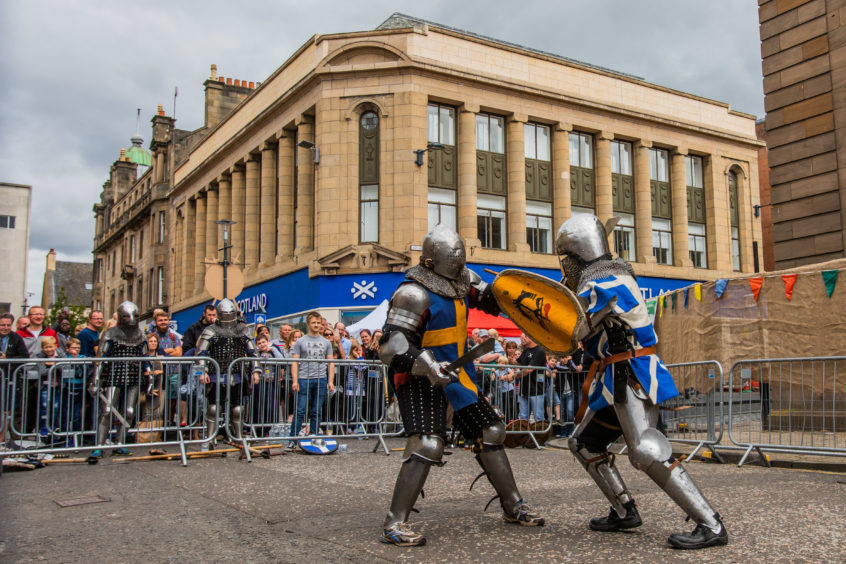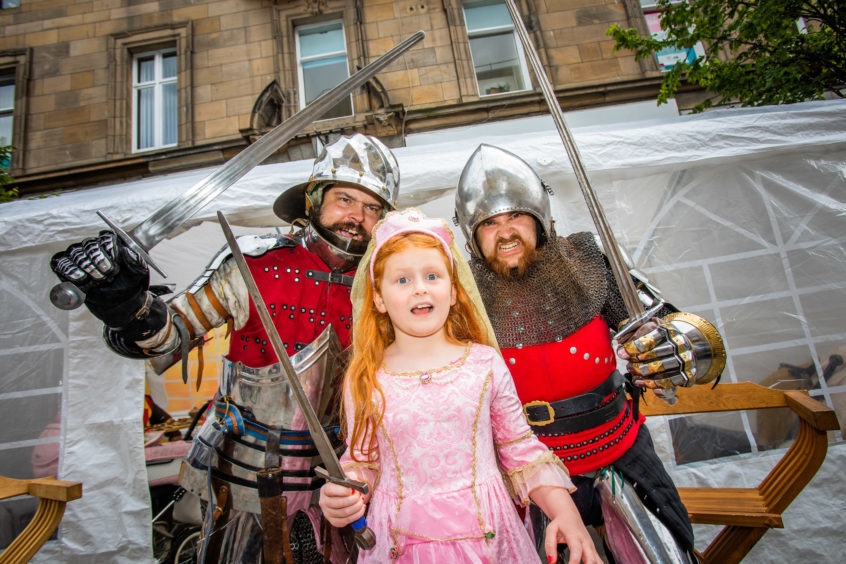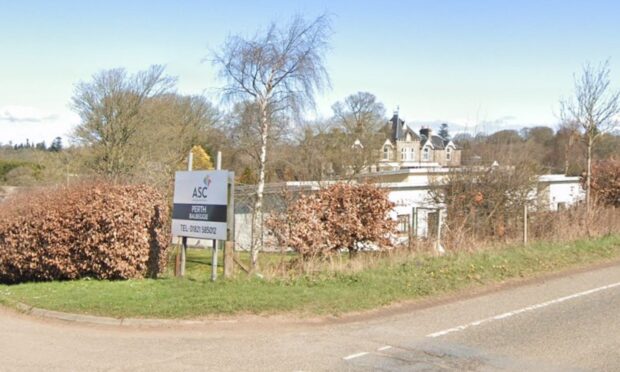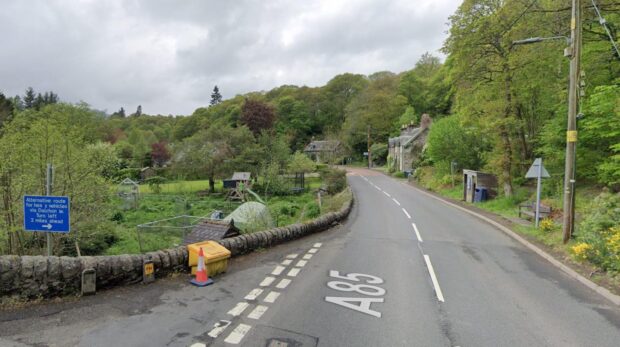A bizarre new athletics event could become an annual crowd-puller for Perth.
The first Great Perthshire Tattie Run took place this weekend, with hardy souls racing through the Fair City centre carrying hefty sacks of potatoes on their backs.
Men and women were given the chance to run a mile over cobbled streets with bags weighing 20kg or 10kg. Crowds gathered to cheer on the runners as they lapped the landmark city hall building.
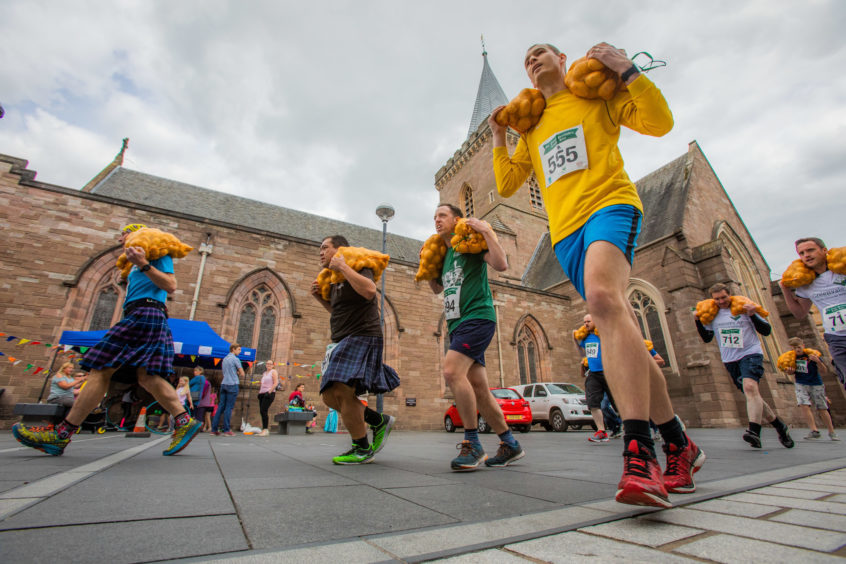
The peculiar spectacle was launched as a highlight of the city’s annual medieval fair, as well as a way to celebrate the region’s strong agricultural sector.
Provost Dennis Melloy said he hoped it would becomes a regular event.
“Perth has a growing reputation as a vibrant, colourful city,” he said. “There is always something going on.
“The first tattie run seems to have been a great success and I think it will become a worthy addition to the calendar and attract audiences from all over.”
Andy Waugh, co-director of Great Scottish Events, which supported the race with sponsors Greenvale AP, said: “We were very impressed with the team at Perth and Kinross Council and their enthusiasm to bring unusual, diverse and fun activities to the Perthshire area.
“We hope that residents will embrace this event.”
The race helped raise cash for local charities, while leftover tatties are being distributed to local lunch clubs, shelters and foodbanks.
The run was held on Saturday afternoon, during a day of living history which brought thousands of visitors to Perth city centre.
The Medieval Day celebrations saw colourful characters in costume hosting a range of stalls and games, while knights in shining armour battled it out in a series of clashes on King Edward Street.
The celebrations were launched in 2016 to mark the 750th anniversary of the Treaty of Perth.
It was the culmination of discussions between Norway and Scotland over a two-year period and saw Norway cede the Hebrides and the Isle of Man to the Scottish Crown.
Sealed in Blackfriars Kirk in Perth on July 2 1266, the treaty also confirmed Norwegian sovereignty over the islands of Orkney and Shetland at that time.
It ended the conflict between King Alexander III and his Norwegian counterpart Magnus VI.

